Origins, Part eight: Cheese is life, and life is deadly.
The final installment about my caterpillar years as a wandering cheesemaker.
The caterpillar doesn’t know it’s going to become a butterfly.
It didn’t decide that’s what it wanted to be when it grew up.
The caterpillar simply knows when the time has come to build a cocoon,
following the architecture inscribed in its body.
This piece sees me through two more cheese jobs, rounding out the 10 years of making cheese in the US that got me firmly established in the craft. It ends just before I took a job in Mongolia, which began the last 5 years of cheese travel and research from which this Milk Trekker thing emerged, like a butterfly from its cocoon. Writing this origins series has been a joy for me, and I hope it helps explain how I got to where I am, my caterpillar years. Maybe I’ll be done being a butter that flies someday, and go back to being a canter pillar, just so I can build another cocoon and transform into something else. There’s no plan. Just visions, a heartbeat, and feet made for walking. Lots of feet.
Everyone wades through shit, and makes it seem worse than it is.
I hope I always have a bit of that shit stuck to my boots,
A reminder of how life works, of what I’ve walked through, to get here.
Ecuador had shaken my core, and I returned pretty fired up to drop old habits and do the internal work that I could clearly see was necessary. I had already lined up an apprenticeship on a small organic farm North of San Francisco, in the tiny town of Bolinas. I moved into a trailer onsite and started working hard, caring for starts in a greenhouse, then transplanting and caring for row crops. The farm appealed to me because they practice Korean natural farming, which focuses on cultivating microorganisms to feed the soil ecology, and address the needs of specific crops on the level of microbial relationships. It’s the natural cheesemaking of farming. Unfortunately, the amount of work that was expected from us for a meager stipend didn’t feel right to me. So I walked away. I’ve done this with so many jobs that I had committed to, and feel awful every time. It’s a bad habit I have, on many levels, of being unwilling to work out difficulties, and simply running ways when things get tough.
I took a job making cheese for a small company in the small town of Tomales in Sonoma county, and when I started I was living in my van as I looked for housing. I eventually found a spot, at a crazy old farmhouse in Petaluma with this hoarder lady who had a shitload of sheep and goats, and raised hogs off discarded bread and pastries from Safeway. It was pretty fuct, but was the cheapest option I could find, and I got to work with the livestock as part of my rent. I had all these fermentation experiments going, making kombucha, water kefir, kimchi and lacto-fermented veggies. I would wake before sunrise and let the herd out to pasture, feed bread to the chickens and hogs, then drive out to work at the creamery.
The company was located at a dairy where very nice Jersey milk was produced, a portion of which we used for making cheese. There was a major focus on sanitation procedures, HAACP plans, rigorous record keeping, and avoiding “contamination” meaning a sharp division between the world outside, and inside the creamery. There had been a voluntary recall after some cheeses tested positive for Listeria, so I could understand why such a cautious approach had been taken. Still, a lot of it seemed more based on covering legal requirements, having paperwork in place, and avoiding liability. I was also getting the impression that cheeses made with this emphasis tended to be a bit boring, lacking in life and expressive, tantalizing flavors. When there is so much effort put into cultivating exclusively the microbes that are introduced from a package, the supposedly standardized, select strains offered by biotech companies, it should come as no surprise when the cheese lacks diversity and expression of the place where it is made. It was coming to feel increasingly absurd, to make cheese from these corporate cultures whose sourcing is undisclosed, raised in a laboratory on another continent, when healthy intact raw milk contains the microbes neccesary to turn milk into cheese. I kept asking myself, how and why have cheesemakers in the US become so divorced from the primary ingredients of their craft? How local is cheese, if 3 of the 4 ingredients (culture, rennet, salt) are sourced from far away, perhaps other continents?
I eventually left this job as well. The cheese scene in Marin, Sonoma, and San Francisco is amazing, and I am glad I got to experience it. Living with on farms and working with livestock was fun and I was set on continuing to live like that, rurally, with lots of animals and good food to ferment. I took a road trip up to Seattle in the winter, driving the coastal route through NorCal and Oregon on 101. Returning to California, I moved down to a goat farm and creamery a bit further south.
It was a dreamy location, close to a less populated stretch of coast where I would backpack and sea kayak. We made some nice cheeses, I got to milk the goats a bit, and I kept my side fermentations going, getting really into making fruit wines and vinegars. The cheeses were nice, but I now questioned the whole approach, and could no longer be happy making cheese from pasteurized milk with commercial starters, faceless rennet, and wonder bread salt. Not so long after starting, I left that job as well. I was experiencing a deep dissatisfaction, the feeling of an itch I couldn’t locate, let alone scratch. Like a caribou fleeing mosquitos, I let that itch push me onto an airplane, heading to Mongolia, unaware of what would come. Just scratching away, itching along, running from something I couldn’t identify.
The point I hope to get across from this series is that my depression, grief, and dissatisfaction were catalysts for growth. What seemed at the time like aimless wandering, endless fuck ups, and a mud pit of negative emotions that I was bogged down in were actually part of a process unfolding. Those frustrating sentiments were valid, and as they composted they the prepared of the soil of my life for news seeds to sprout, from which the garden that I now tend would flourish. They were signs I was done being a caterpillar.
These years of roaming had allowed me to become comfortable not having a permanent residence and getting by with no sense of financial security. This is the groundwork behind the Milk Trekker wanderings and Sour Milk School workshops. It has all culminated here and now, as I prepare to leave the US again, and spend the year in Italy, Montenegro, Bulgaria, Romania, and Spain. I have a few things planned, but there is plenty of room on my calendar for life’s spontaneity to do its work, wiggle room in which the real adventures arise like onions in spring soil. The best things in life can’t be planned and aren’t consciously willed. They emerge, are born, they carry you away, overwhelm your rational thought process and burst on the stage, knocking things about. The adventure of a lifetime starts with not knowing which way to go, being cold, confused, and uncertain, but willing to continue walking in the dark. Eventually, the first glow of dawn coalesces as it lights up distant hills, promising the warmth of the coming day. All trails lead back home, back to yourself, into your cocoon so you can sleep and fall apart before emerging and taking flight, another version of yourself, updated, transformed but still carrying an essence, the weight and momentum of the past pushing you forward.
We do it over and over again, until there is no line between the tree, the leaf, the fruit. The caterpillar, the cocoon, the butterfly.
Walking out the death dance, running the life spiral, exuberantly, saddened, torn apart and put back together again.
Becoming ourselves more fully, with each trip of the living rock around the great burning star, itself in a state of continual transformation.
May your star burn brightly, beautifully, fully.
With love for our past, and faithful anticipation for the future,
Trevor

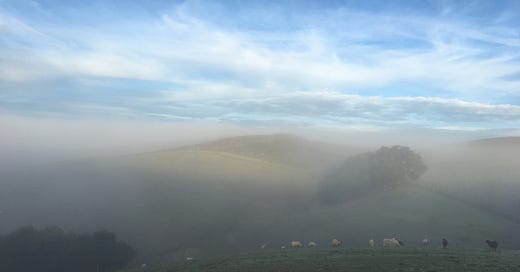



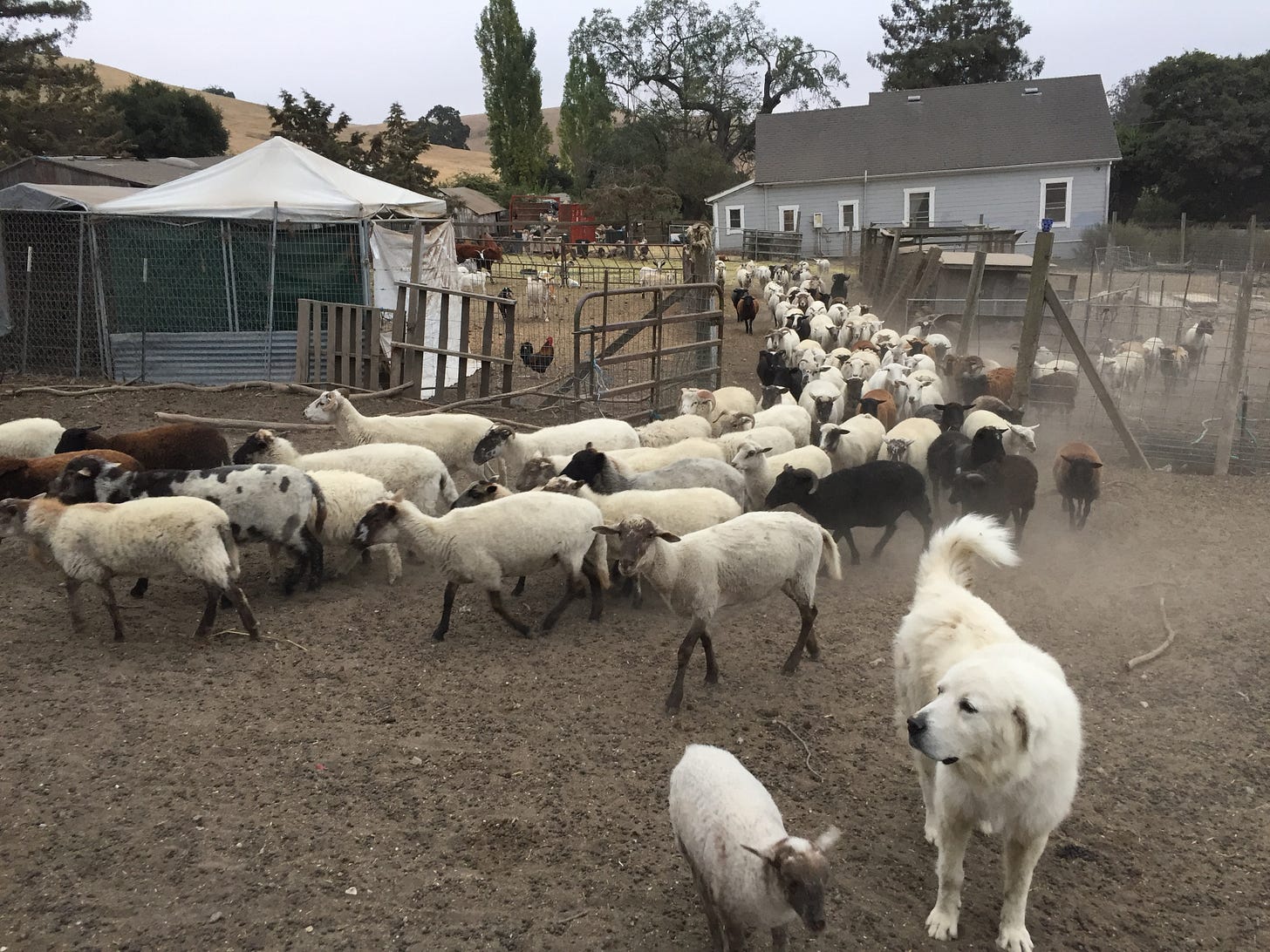
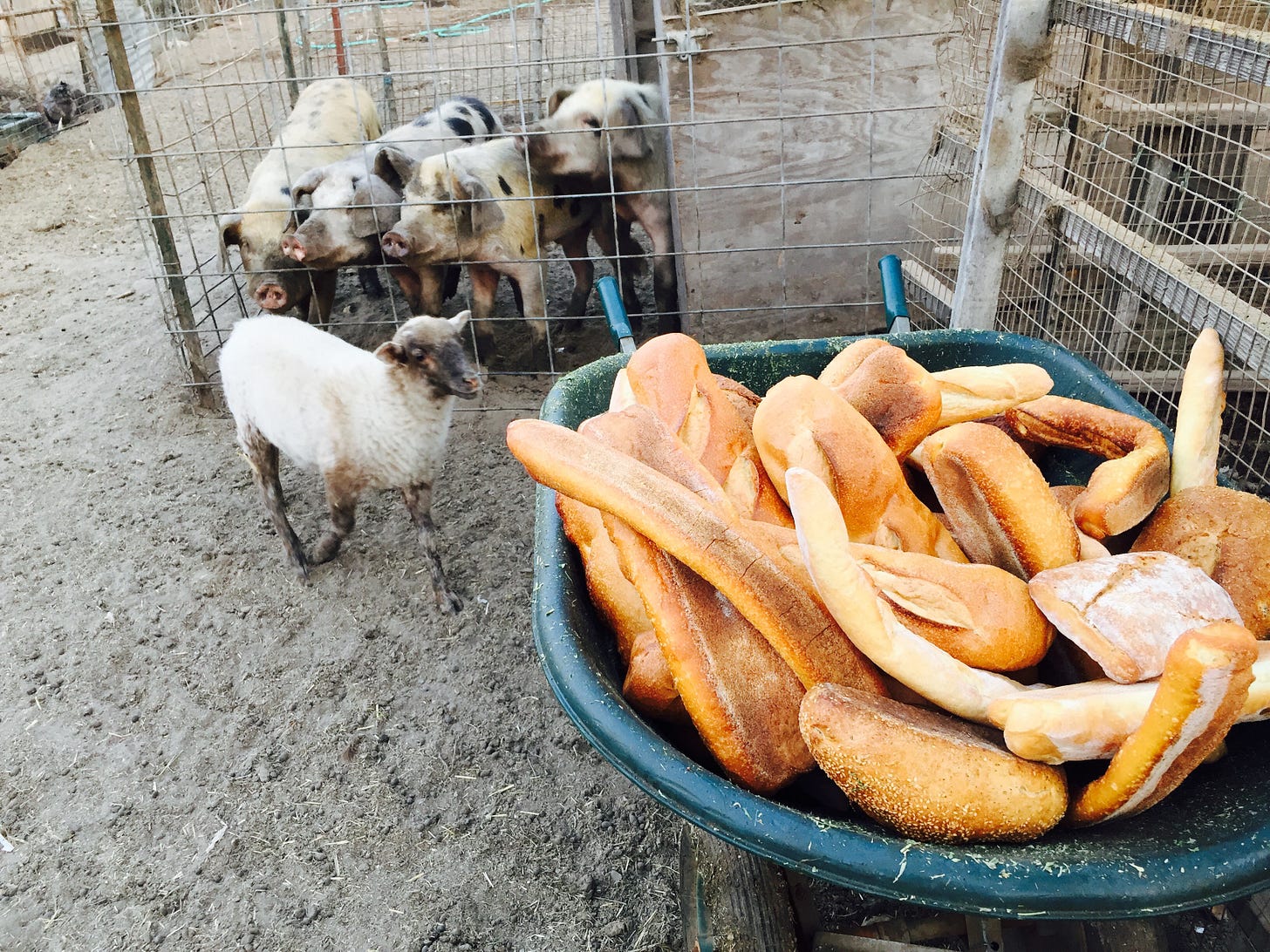
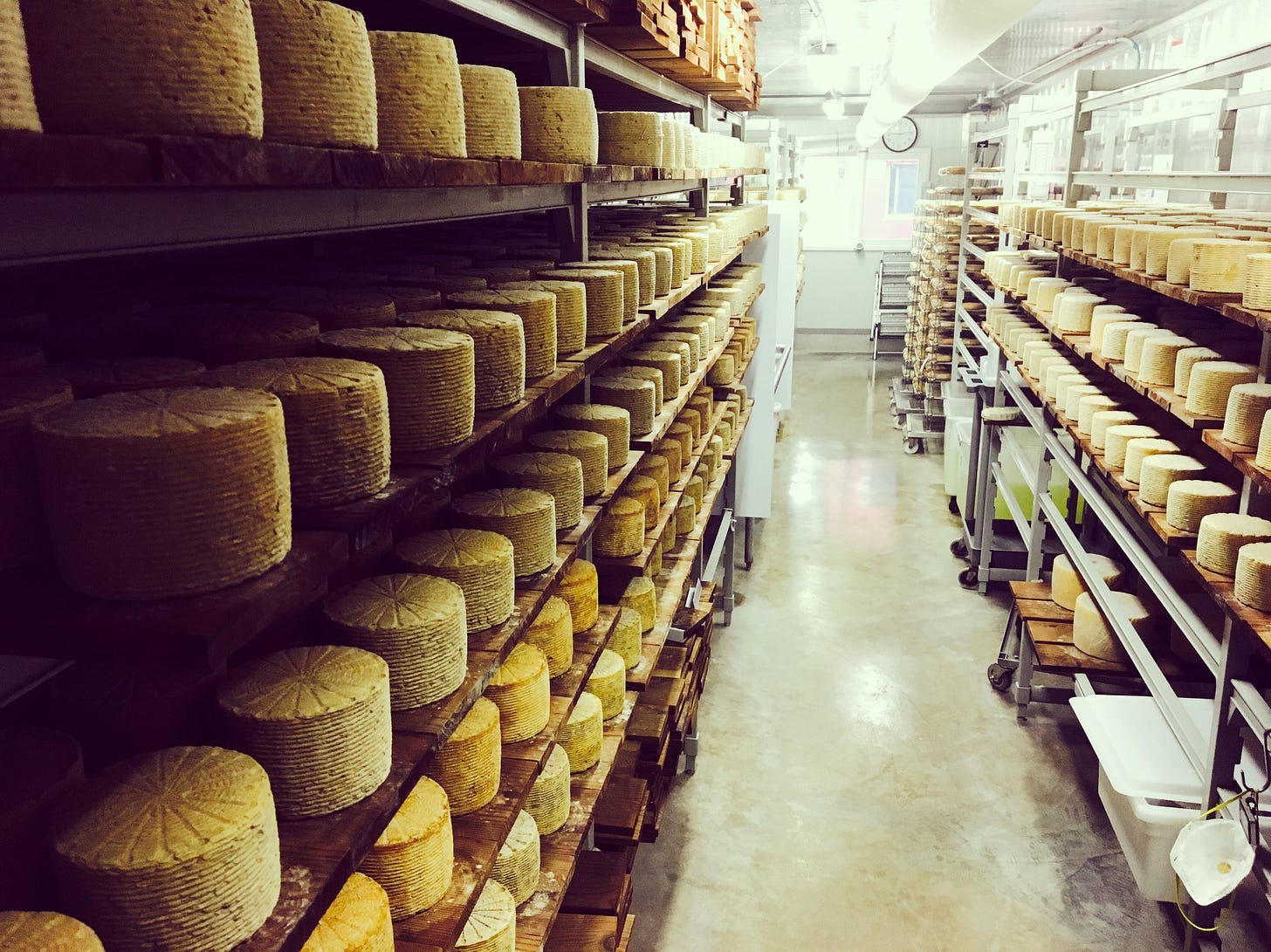
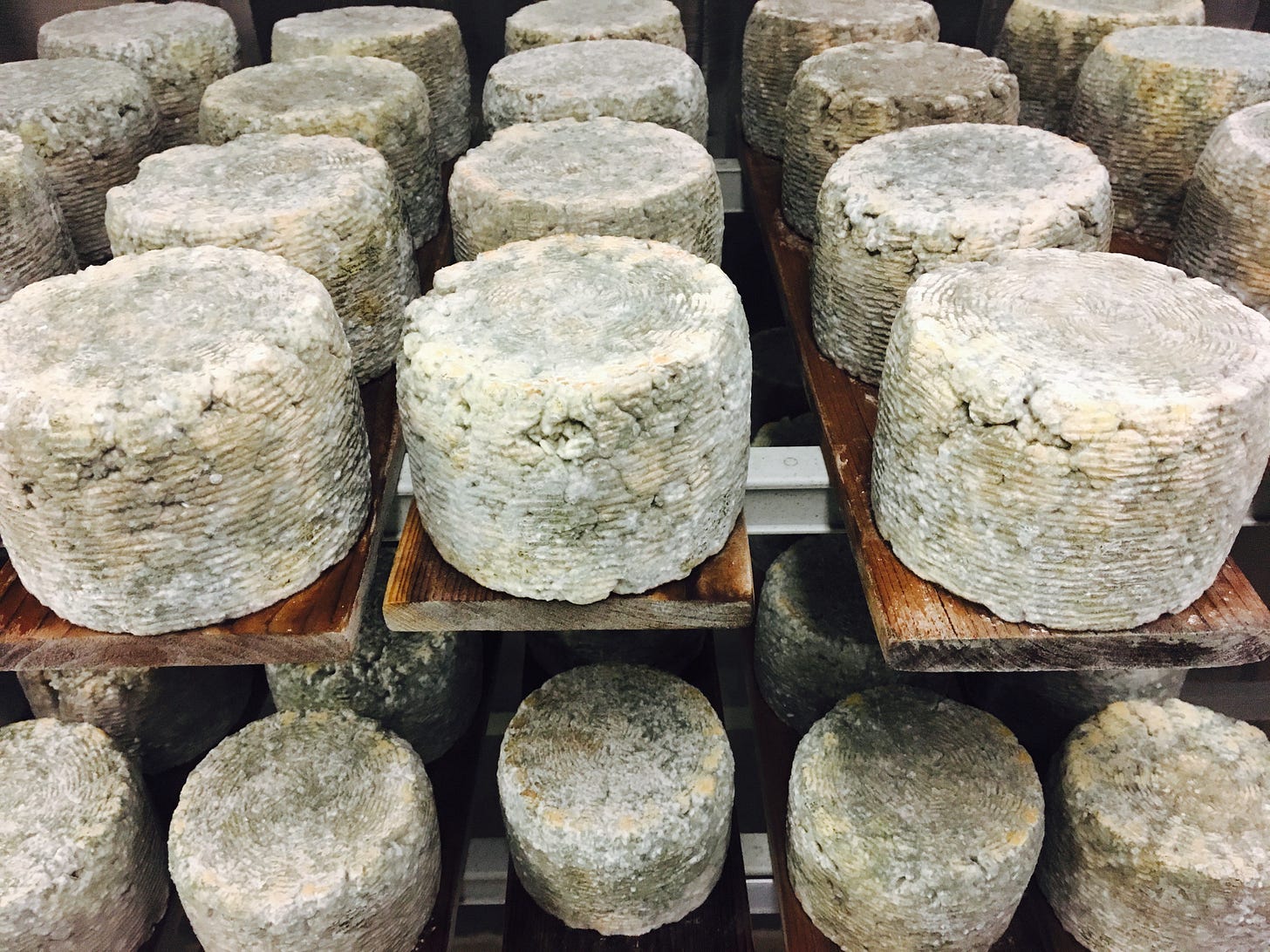
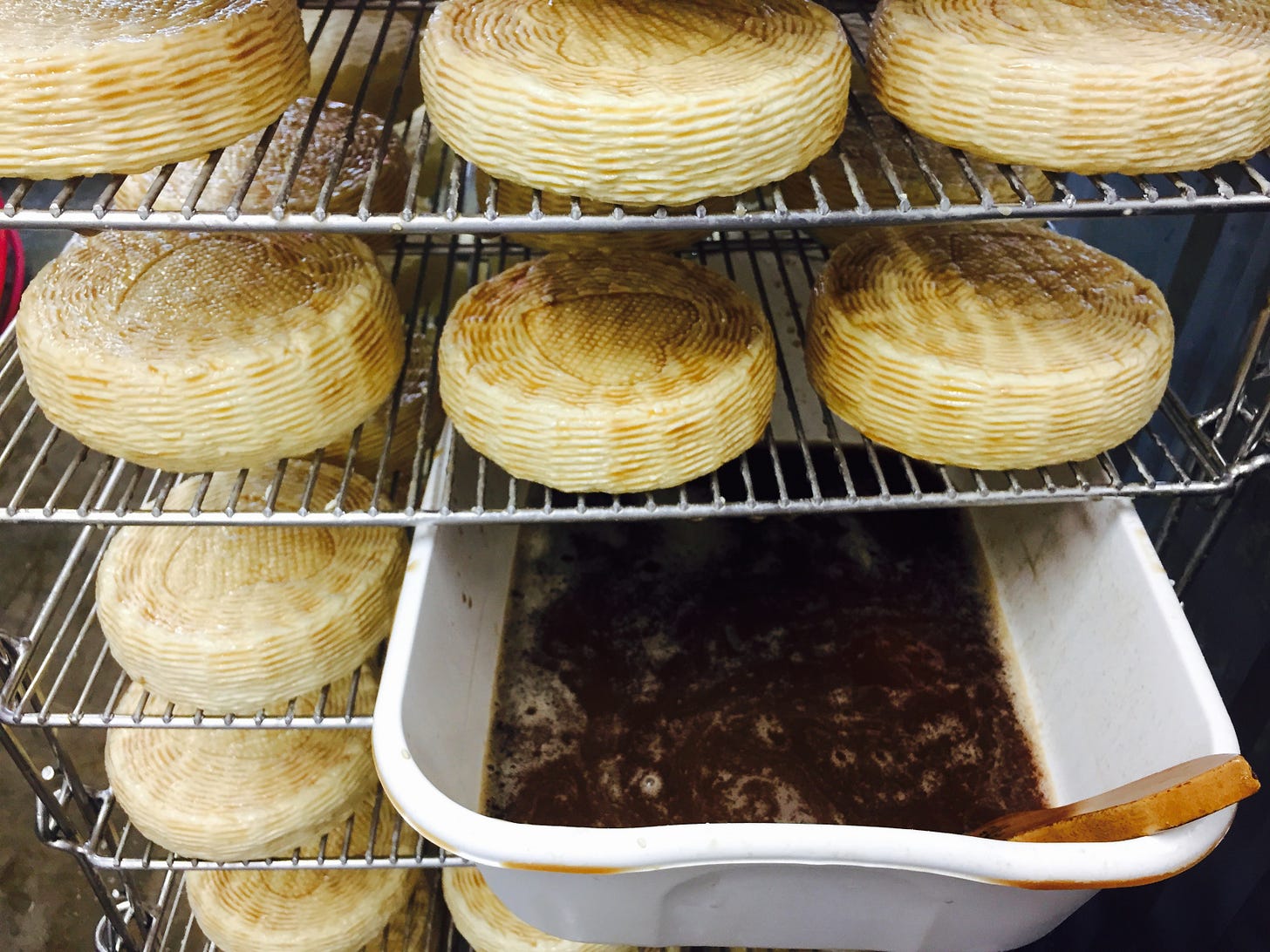
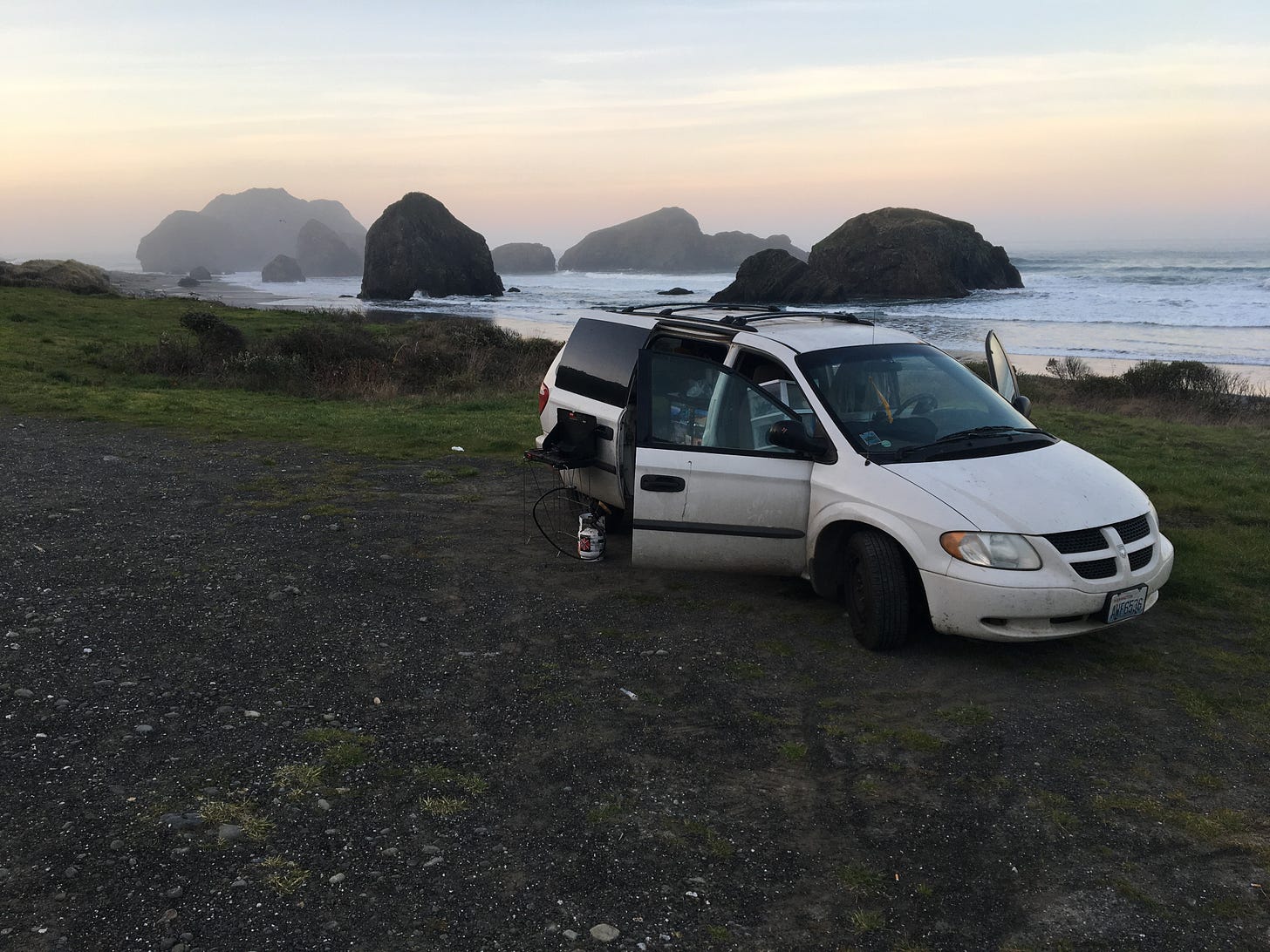
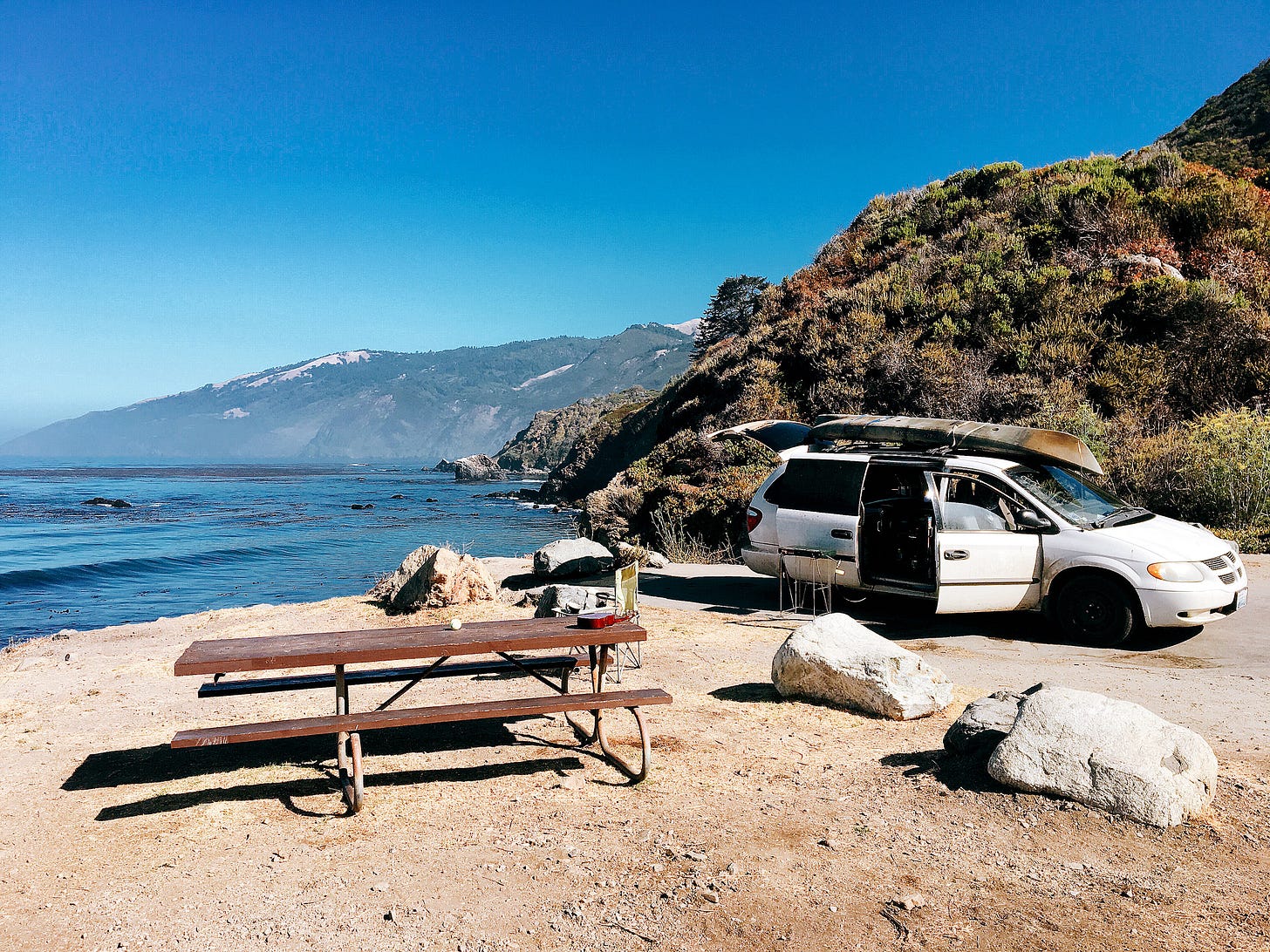
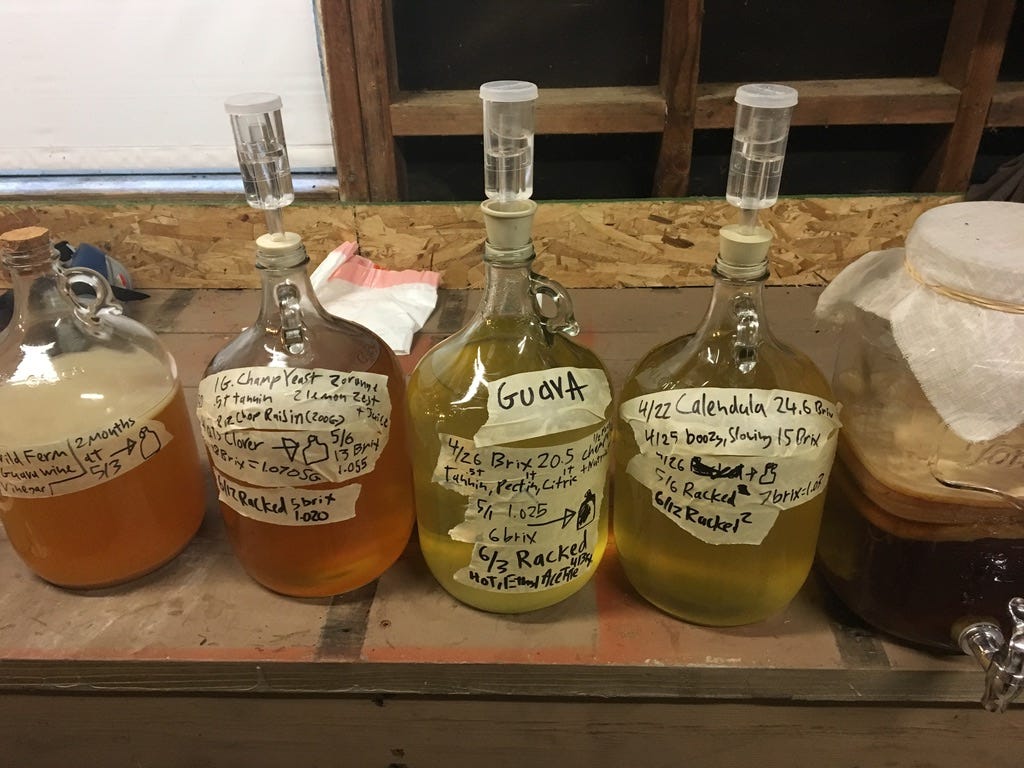
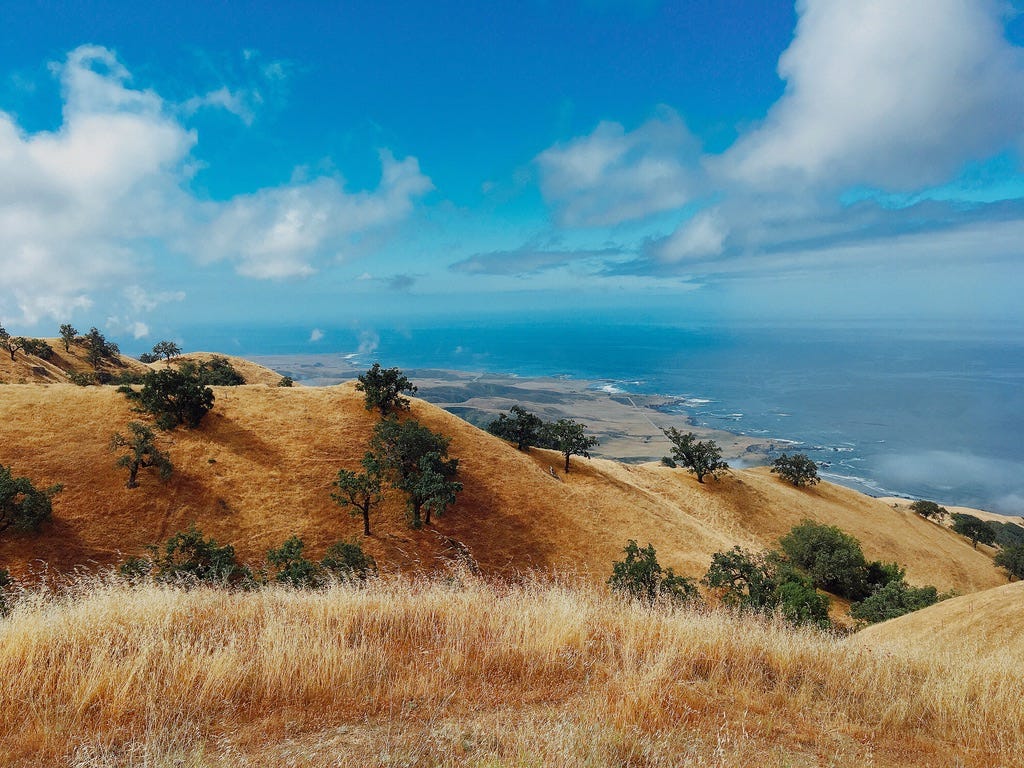
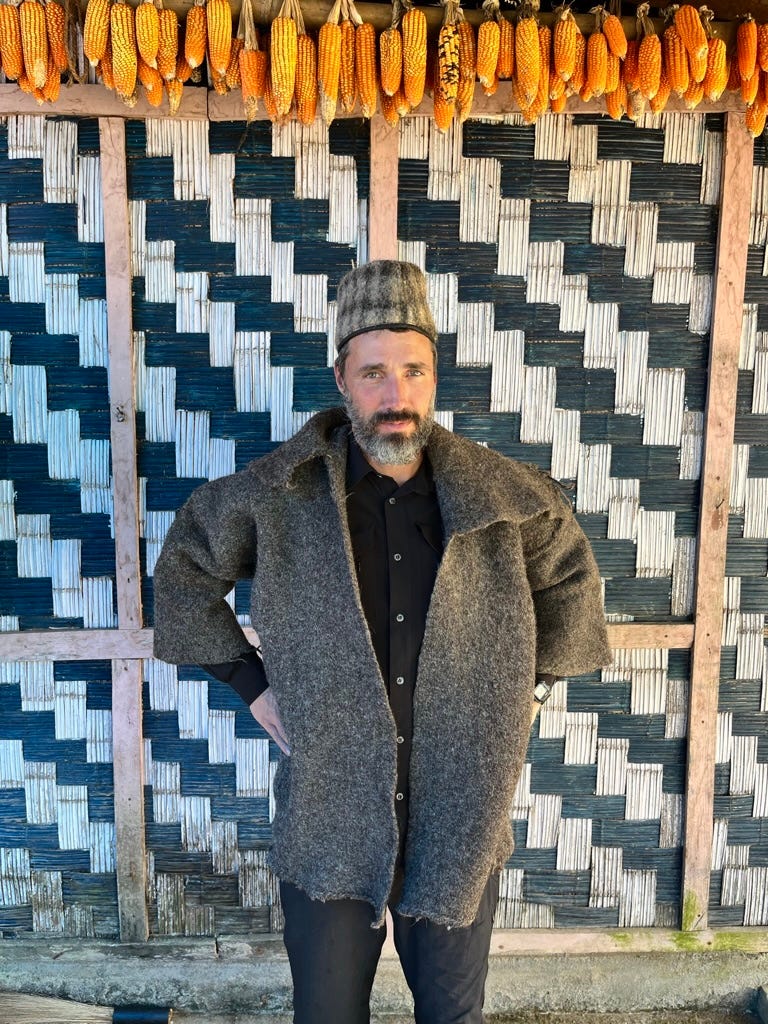
Nice!
Hi! My name is Celeste and I have been reading your publications for some time. I think your posts are very heartfelt and beautifully written. I have had a very similar journey with food, fermentation and myself and I was wondering if I could get in contact with you! Is there any email I can write to? Thank you very much :)